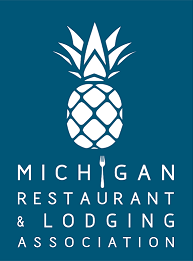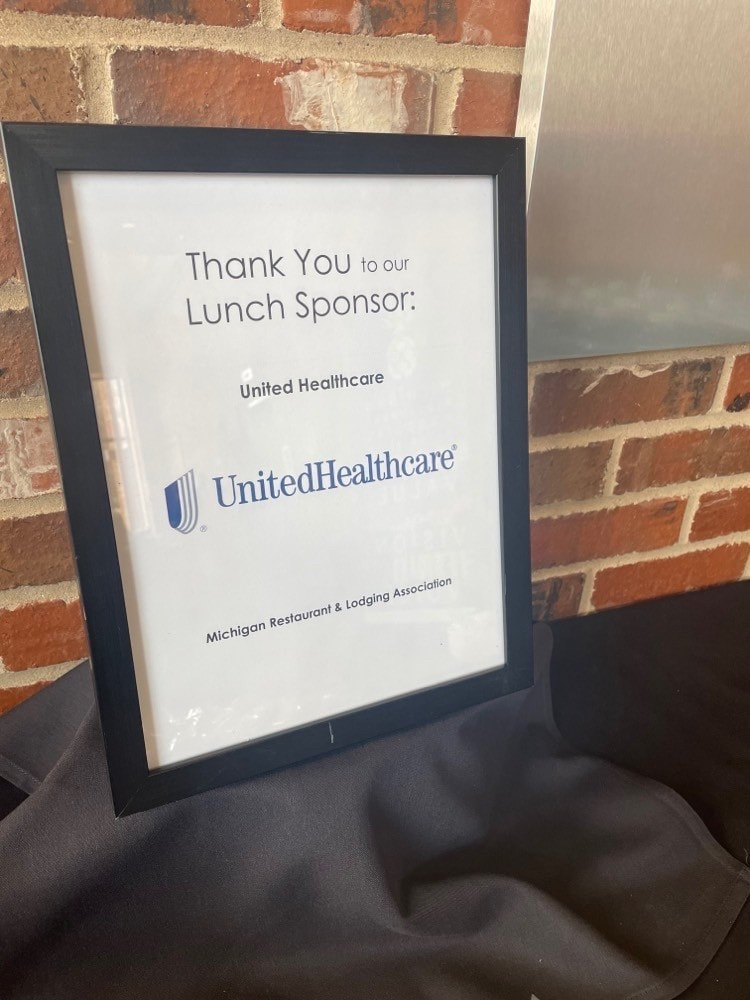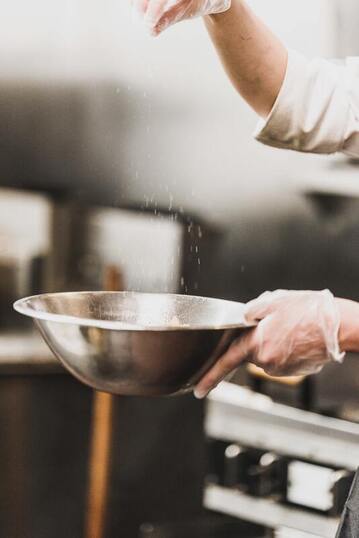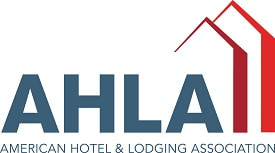Winter is Coming: Innovative Solutions, Public Policy, and Braving the Storm
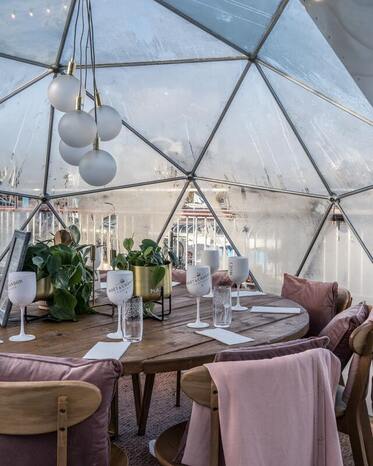
Our Pure Michigan summer looked very different in 2020. However, despite the initial and devastating blow of COVID-19, many restaurants and lodging establishments have managed to stay afloat, operating under unique models and creating entirely outdoor dining experiences. While that’s a triumph worth celebrating, there’s one glaring reality the industry faces: winter is coming.
In the heart of the midwest, Michigan is no stranger to the cold months and frigid weather conditions, and the question plagues industry leaders: how do we survive what might be our most challenging season yet? An Industry On Thin IceWinter is knocking at our industry’s door, and there’s never been a more critical time for its survival—more than half of the hotels in Michigan remain unprofitable and nearly a quarter of the state’s restaurants do not anticipate being in business in the next six months. Expanded outdoor patio seating, great weather, and federal stimulus funding helped to sustain things throughout the summer, but the winter season comes with mandated capacity reductions and other crippling indoor service restrictions that pose more threats to travel, dining, events, entertainment—every facet of the industry. Recent economic impact data outlines the devastation we’re facing if no action is taken to ease these restrictions going into the winter season, and the consequences could be dire. In Michigan, more than 5,000 restaurants and hotels are at risk of permanent closure if they don’t change, and hundreds of thousands of jobs are at risk. In response to this growing and serious concern, MRLA launched Don’t Leave Michigan's Hospitality Industry Out In the Cold, a campaign focused on advocating for policy changes, specifically to restaurant and banquet space capacity restrictions, as the colder months approach. The proposals call for other things like subsidized training for the MRLA ServSafe Dining Commitment and restored Pure Michigan campaign funds. One thing we know: Michigan’s hospitality industry is resilient and more united than ever before. While the public policy fight continues, industry leaders must come together and collaborate, focusing on the other components of survival as each day becomes colder—innovation and creativity in completely uncharted territory. |
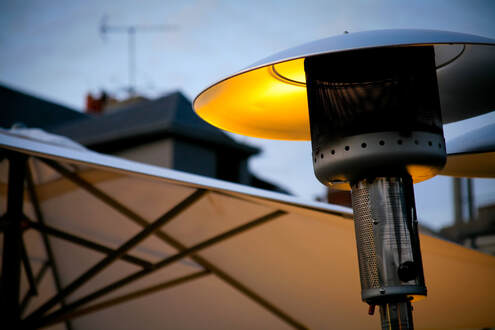
Fighting The Cold With With Forward Thinking
On June 8, restaurants statewide were permitted to open at a mere 50 percent capacity, making outdoor seating, social zones, and expanded patio permits critical components in the race to recover and rebuild—most operators relied on outdoor business to bring in most, if not all, of dine-in sales. Now, the most pressing challenge is finding creative ways to make outdoor seating and gathering areas hospitable, despite inclement weather. The MRLA’s campaign calls for policy changes allowing restaurants to retain the expanded capacity gained via outdoor seating this summer by allowing them to safely winterize those spaces while extending their temporary alcohol service permits as well. Tents, portable igloos, heating lamps, fire pits and blankets—even with winterized spaces, our days of outdoor seating are limited by the threat of a Michigan winter. Right now, the MRLA is focusing on providing as many safe options for capacity expansion as possible which includes the winterization of outdoor spaces, potential grants to help offset costs of investment, and safely increasing indoor capacity. 
Indoor capacity limits are crippling resorts, hotels, and lodges, too.
For nearly seven months, the Grand Traverse Resort & Spa has had 88,000 square feet of gathering space sitting nearly empty, and as Northern Michigan’s largest meeting and event space, the loss of revenue has been crippling. The resort’s typical summer season is 800 employees—this year, it was barely 500. As the downward trend continues into winter, that number will likely continue to lower. Despite the blow of COVID-19, manager Matthew Bryant says this really isn’t a negative time, but a positive time to move forward for the industry, and he believes the best way to do so is by working the system, not fighting it. “We have to do the best we can with what we can control—don’t ask someone else to bring you the solution, come up with the solution that will help you stay open,” Bryant says. “COVID is short term, but we have to put procedures in place to get to the long term end goal and survive this season.” In April, the resort officially launched its Safe Meetings campaign outlining their strategic safety protocols and extensive sanitation procedures to ensure guests a safe and positive experience while attending meetings or events at the resort. Bryant says this plan’s proactive and progressive nature allows it to serve as a solution for the short and long term. “We felt that if we proved we can safely gather for events and meetings right now, then we had a fair fight at getting higher capacity in our meeting spaces and having larger events this coming season.” The safety and health of associates, guests, and the ownership group were the sole focus of this plan, something Grand Traverse Resort & Spa takes incredibly seriously. The resort and spa started pre-tracing temperatures in March before they were even required. Now, in the few events they’ve been able to host, they still require all guests to wear masks, despite the law. So far, the resort has hosted three group meetings of 180 people, all of which were a success. Although the most recent executive order allows large gatherings up to 500 in Region 6, Bryant says that’s nothing in a room made for 3,000 people. “Plain and simple, we need occupancy to go up, and our goal with this to continue pushing for that bigger number,” he says. “Grand Traverse Resort & Spa has proven through diligent policies and procedures that people can safely gather and business doesn’t have to suffer like this if we’re doing this right.” Despite the blow of COVID-19, the resort has managed to successfully navigate the pandemic and safely reopen golf courses, restaurants, the spa and health club, and welcome hundreds of guests to the hotel throughout the past six months. But as occupancy restrictions on their meeting spaces pose a serious threat heading into the cold season and holiday months, Bryant says the resort is pivoting some of the Safe Meeting plan’s focus on that piece, too. “We’re Michiganders, we snowmobile, snowshoe, downhill ski, cross country ski, we ice fish,” he laughs. “Winter doesn't prohibit us from gathering, so we are figuring out how to make that happen.” The resort can use its ample meeting and event space to host small holiday gatherings under current restriction rules, and the team is getting creative with outdoor solutions. Gillett says first in the plan is purchasing eight winterized igloos and moving some spa treatments out into nature. “Now, this coming season, and for the future, we want a facility where people can come and gather,” Bryant reflects. “That means—especially right now—that we must be forward-thinking, not reactive. |
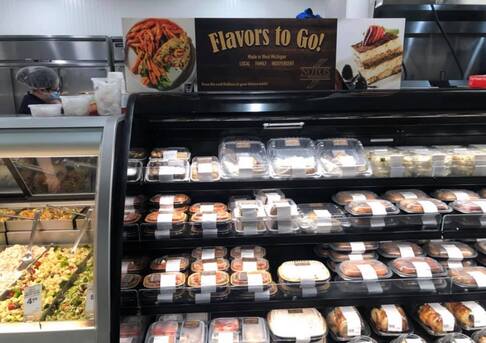
Family Business Meets Pandemic Partnership
Tony Noto’s local family-owned businesses have been hit twice as hard by this pandemic, requiring an extra stroke of innovative and creative thinking. The Noto Family name is a strong foundation for local fine dining and entertainment on the west side—in Grand Rapids, Noto’s Old World Italian offers elegant dining and banquet services. In Grand Haven is Noto’s at the Bil-Mar, their upbeat, contemporary restaurant and bar on the shore of Lake Michigan. “Losing dining was devastating enough, but we’re also a banquet facility, and it’s temporary closure has greatly reduced revenue and projections,” owner Tony Noto says. “We lost weddings, we’re going to lose holiday parties—it’s like a year that didn’t even happen in our eyes.” Noto says his #1 concern was coming up with a model that could sustain operations enough to keep his staff employed, the community safe, and revenue flowing. The Noto’s took the PPP loan and retooled the restaurants using proper measures. Preparing for the new order and delivery climate, they implemented an online order system and started offering Noto's Old World Italian Dining take-and-bake options straight from the kitchen. “It was nice that we could send some of the Noto’s authentic italian dining experience home with guests, but we still needed to find ways to get them into our restaurants and buying our products.” When restaurants opened for dining on June 8, Noto’s restaurants utilized every ounce of outdoor space they could—their beautiful outdoor patio and bar, welcoming and safe seating areas, a self-serve style bar and lounge area they call “The Sandlot.” Noto’s at the Bil-Mar lakeside atmosphere offered a handful of creative options, specifically in the summer season. “We’re right along the water, so when the weather got nicer before restaurants were open and people came to watch the sunset, we’d charge $20 to park in our lot or $15 for a wood fired pizza,” Noto explains, “We had to think strategically, and people really liked this creative way of supporting us. Our customers mean everything to us.” There are plenty more people eager to creatively support restaurants like the Noto’s—lucky for Tony and his family, when the pandemic hit, so did a perfect partnership. Local grocer giant Meijer reached out with an opportunity for something the Noto family business had been working towards for 15 years—retail sales, a promising path for the business through the coming season and into the future of the family business. The offer was simple: Meijer was looking for products from well-loved restaurants to package and sell in their stores, something the Noto’s could deliver. “We didn’t have to jump through many of the hurdles that make it nearly impossible to break into the retail market,” Noto says, gratefully. “They’re doing this out of gratitude and because they can help, understanding that their business is thriving while restaurants are suffering.” You can now grab an authentic Noto’s Old World Italian Dining takeout meal from four west-side Meijer locations—Cascade, Knapp, Gaines, and Grand Haven. Tony Noto is proud of his family’s efforts and progress through this pandemic, and grateful for the opportunity to collaborate with Meijer. They’ve been working with their specialty chefs to create different products for retail, even working on a potential partnership with a meat packer to sell their famous meats, fresh and frozen. Noto’s hope is that they can continue breaking through the market—their next step is working to get sauces and salad dressings on shelves in grocery stores. “It’s a long and challenging process, but we’re moving in the right direction during the right time—there’s a tremendous amount of value in terms of what we can do with this.” What Tony Noto says carries the same sentiment for the entire industry—by acting now, innovatively adapting, and advocating for public policy, the industry is moving in the right direction as we prepare to weather the season ahead. These efforts bring tremendous and critical value to our communities and the economy, and with the right momentum, can help the industry survive and thrive. The MRLA works diligently to provide constant support for all businesses in the Michigan hospitality industry through advocacy and essential resources, particularly as the colder months approach as a threat to our livelihood. For more COVID-19 resources and other helpful tools and information, visit mrla.org/coronavirus. |
